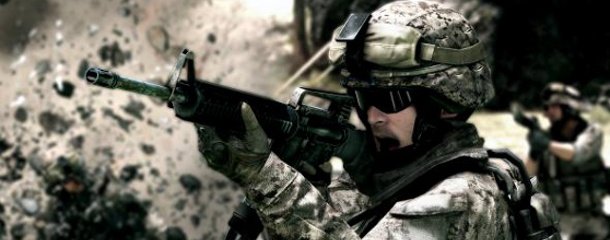
At Ars Technica, Ben Kuchera tells the searing stor y of a young medic who joins an assault team charged with storming enemy positions. The only problem is, the assault team is composed entirely of snipers, and refuses to move out. He asks his CO about it:
"The squad leader grinned coldly before bringing the binoculars up to his eyes. 'Of course we're the attacking force. That's why it's so important for every man under my command to pick up a sniper rifle and wait here, at our base.'
He nodded to himself, sure of his strategy. 'Snipers as far as the eye can see. Sooner or later... they'll come to us.'"
This and other anecdotes are hilarious gags at the expense of the way games like Battlefield work, and gamers' seemingly bottomless appetite for killing things through long-range sights, and driving vehicles they don't know how to use.
It also reminds me of Red Orchestra 2, and the kinds of stories that come out of its more structured missions and teams. Sometimes I'm a little sad that I rarely get the chance to work on my sniping, or my tank-driving skills, but I also have to admire how harshly RO2 enforces balanced teams and cooperation. The temptation to go lone-wolf in a RO2 match is tempered by how indifferent it is to kill-to-death ratios, and how difficult it is to operate in isolation from the team.
I wonder if it's just a question of audience, or whether RO2 has created a set of acceptable behaviors through classes and scoring. If you took the same people who are parking on hillsides in Bad Company 2 and put them in RO2, would they still camp? I'm not sure. There is something about RO2 that is authentic, that creates stories not about what I did, but what "we" did.
The biggest gaming news, reviews and hardware deals
Keep up to date with the most important stories and the best deals, as picked by the PC Gamer team.

